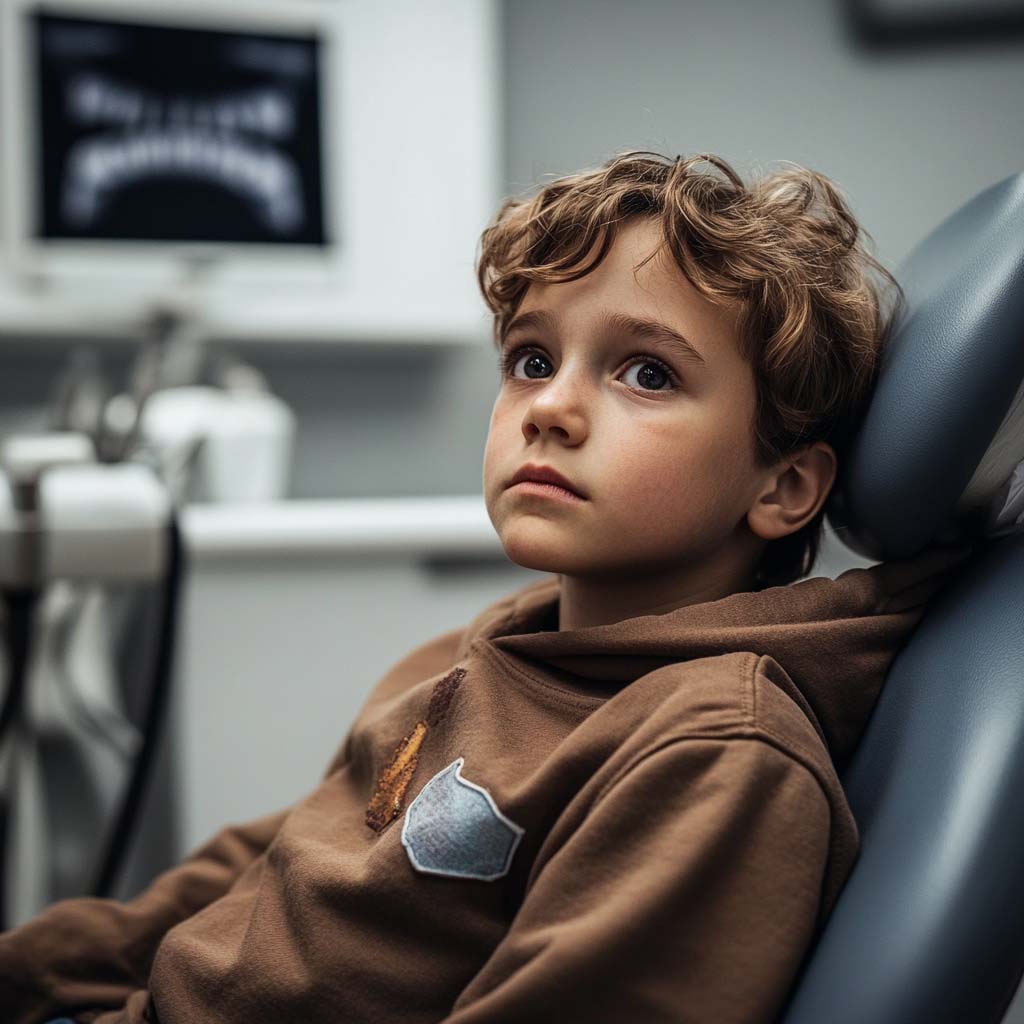Children with limited communication abilities require specialized care to ensure a safe, comfortable, and successful dental experience.
Whether due to developmental delays, autism, or other medical conditions, some children face unique barriers when it comes to expressing their needs, discomfort, or anxiety. As a result, they require specialized care to ensure a safe, comfortable, and successful dental experience.
At The Dental Anesthesia Center, we specialize in providing compassionate care for all patients, including those with special needs.

At The Dental Anesthesia Center, this is how we manage dental procedures for children with limited communication and the strategies we use to make their visits as stress-free and effective as possible.
Pre-Appointment Consultation and Planning
Communication begins well before the child ever steps into the dental office. We encourage parents or caregivers to schedule a pre-appointment consultation, during which they can share valuable information about their child’s communication style, preferences, and specific needs. This allows us to tailor our approach based on the child’s unique abilities and ensure we are prepared to accommodate them.
During this consultation, we discuss:
- How the child communicates (verbal, non-verbal, use of signs, gestures, or assistive devices).
- Any sensory sensitivities or triggers that may cause anxiety (e.g., lights, sounds, textures).
- Strategies that have worked during previous medical or dental visits.
- Preferences for parental involvement during the appointment.
Understanding the child’s background and communication methods can create an individualized plan to guide the dental visit.
Visual Aids and Social Stories
For many children with limited communication, the unknown can be a significant source of fear and anxiety. To help ease these concerns, we utilize visual aids and social stories. These tools offer a step-by-step preview of what will happen during the visit in a simple and visual format.
- Social Stories: These personalized stories use pictures and simple language to explain the dental visit. They often include images of the dental office, the dentist, the equipment, and the steps of a typical exam. By walking the child through the experience ahead of time, we can help reduce anxiety and make them feel more prepared.
- Visual Schedules: Visual schedules outline the different stages of the visit, such as sitting in the chair, opening their mouth, and receiving care. These visuals can be shown during the appointment to help guide the child through the procedure, allowing them to anticipate what comes next.
Non-Verbal Communication Techniques
For children who are non-verbal or have limited speech, we rely on non-verbal communication techniques to assess their comfort and address their needs. Some of these techniques include:
- Visual Cues: We use hand signals or visual prompts to indicate actions such as “open your mouth” or “raise your hand if you need a break.” These cues can be easily understood and followed, even without verbal instruction.
- Facial Expressions and Body Language: Our team closely observes the child’s body language, facial expressions, and behavior throughout the procedure. These non-verbal signals can indicate discomfort, fear, or pain and allow us to adjust our approach accordingly.
- Parental Insight: Parents and caregivers often have a deep understanding of how their child expresses discomfort or anxiety. During the appointment, we work closely with them to interpret non-verbal signs and ensure the child’s well-being.
Sensory-Friendly Environment
Children with limited communication often have heightened sensory sensitivities, making dental visits particularly challenging. The Dental Anesthesia Center provides a sensory-friendly environment that minimizes potential triggers and enhances comfort.
Some accommodations we offer include:
- Dimming the lights or using natural lighting to reduce visual overstimulation.
- Minimizing noise by using quieter tools and equipment and offering noise-canceling headphones or earplugs if needed.
- Weighted blankets or lap pads to provide a sense of security and calm during the procedure.
- Shorter and frequent breaks to avoid overwhelming the child.
By creating a calming environment, we aim to make each visit as smooth and positive as possible.
Sedation Dentistry for More Complex Needs
For children with severe anxiety, behavioral challenges, or medical conditions that prevent them from tolerating traditional dental procedures, sedation dentistry can be an excellent option. Our team is highly trained in offering sedation or general anesthesia for patients requiring additional support to complete dental care safely and comfortably.
Sedation allows us to perform necessary treatments without causing distress or discomfort. This ensures the child’s oral health is properly managed while minimizing stress for both the child and their family.
Positive Reinforcement and Gradual Desensitization
At The Dental Anesthesia Center, we believe in building trust and comfort over time. We often use positive reinforcement and gradual desensitization to help children with limited communication feel more comfortable during each visit.
- Positive Reinforcement: We offer praise, encouragement, and small rewards to acknowledge the child’s efforts, which can help build their confidence and willingness to participate.
- Gradual Desensitization: For children who are especially anxious or fearful, we recommend shorter visits. During these visits, the child can meet the staff, sit in the dental chair, or become familiar with the environment without undergoing any treatment. This process helps the child become more comfortable over time.
A Compassionate Team Committed to Your Child’s Needs
Ultimately, our commitment to compassionate, patient-centered care sets The Dental Anesthesia Center apart. Our team is dedicated to understanding the unique needs of each child, particularly those with limited communication, and creating a supportive environment that fosters trust and comfort.
We believe every child deserves high-quality dental care, regardless of their communication abilities. By using tailored strategies and individualized care plans, we ensure that children with limited communication receive the dental treatment they need in a way that respects their needs and minimizes stress.
Ready to Schedule Your Child’s Visit?
If you have a child with limited communication and are looking for a dental team that understands and accommodates their needs, we’re here to help. Contact The Dental Anesthesia Center today to schedule a consultation and learn more about our specialized care for children with special needs.
